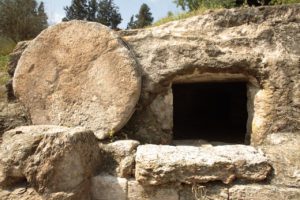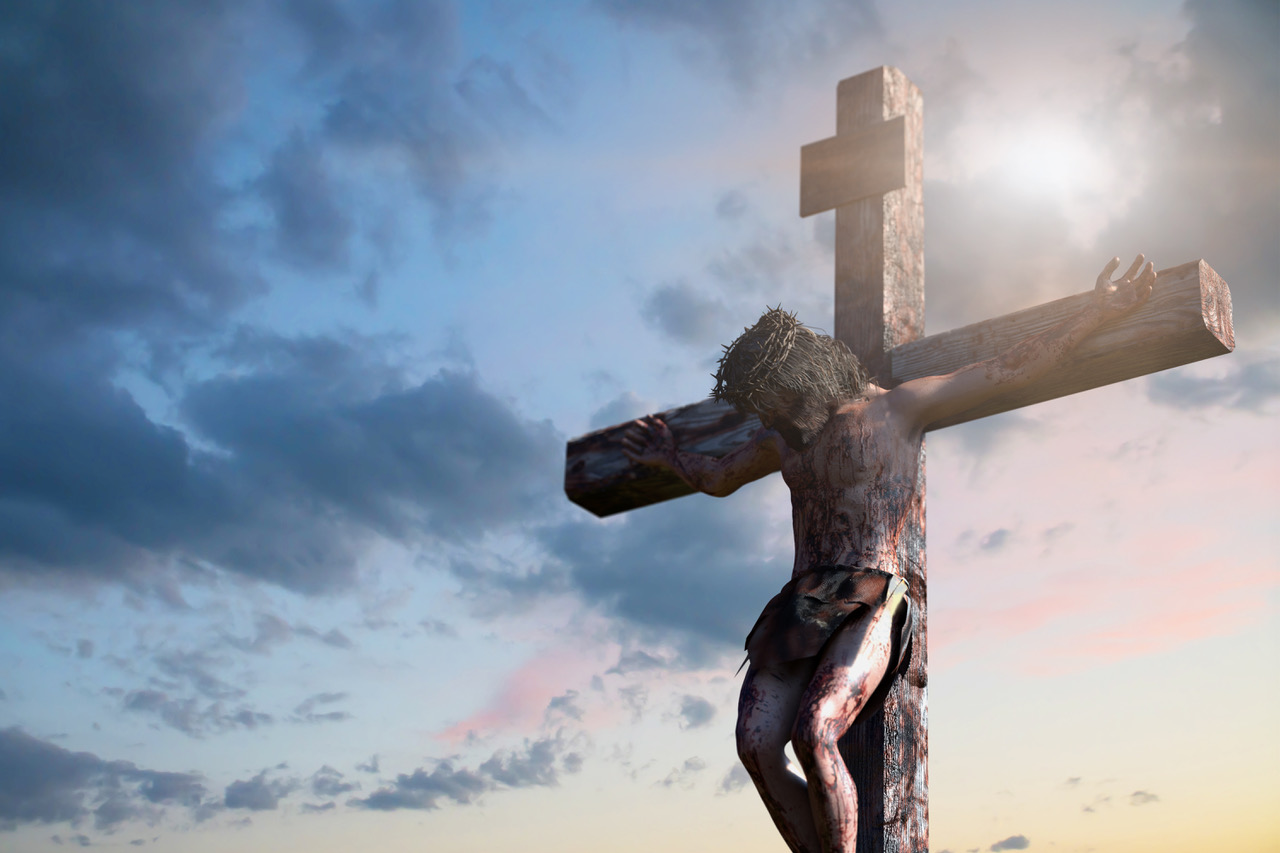filter posts:
Date
Author
What a Christmas Present!
 Talk about incredible journeys. A few years ago a woman crossed the Atlantic by herself in a rowboat. When I was a boy a man named Neil Armstrong took “one small step for man, one giant leap for mankind,” as he became the first human to step foot on the moon. Hannibal, the Carthaginian General, surprised the Romans when he crossed the Alps in 217 B.C. with 26,000 troops, 6,000 horses and his special weapon, elephants, which were used to shatter enemy lines, like modern day tanks. Incredible!
Talk about incredible journeys. A few years ago a woman crossed the Atlantic by herself in a rowboat. When I was a boy a man named Neil Armstrong took “one small step for man, one giant leap for mankind,” as he became the first human to step foot on the moon. Hannibal, the Carthaginian General, surprised the Romans when he crossed the Alps in 217 B.C. with 26,000 troops, 6,000 horses and his special weapon, elephants, which were used to shatter enemy lines, like modern day tanks. Incredible!
But there’s no doubt that the greatest journey, the most incredible of all, was the journey that God took in the person of Jesus Christ. He went from heaven to earth. From Spirit to flesh. From eternity to time. From glory to servanthood.
In his devotional, “Solid Joys,” John Piper wrote that his favorite advent text is Hebrews 2:14-15: “Since therefore the children share in flesh and blood, he himself likewise partook of the same things, that through death he might destroy the one who has the power of death, that is, the devil, and deliver all those who through fear of death were subject to lifelong slavery.” This text, Piper said, clearly connects the beginning and the end of Jesus’ life on earth, the incarnation and the crucifixion. “These two verses make clear why Jesus came; namely, to die. They would be great to use with an unbelieving friend or family member to walk them step-by-step through your Christian view of Christmas.” It teaches us that Christ existed before the incarnation. He took on flesh and blood, becoming fully man while remaining fully God. Why? “…that through death…” The reason Jesus took on human flesh was to die. He could not die for sinners as God, but he could as man. Piper writes, “Therefore he had to be born human. (And) he was born to die. Good Friday is the purpose for Christmas.”
He came as Immanuel, and Christ came as Lord. As the prophet Isaiah said, “For unto us a child is born; unto us a son is given; and the government shall be upon His shoulders.” Then the angel said the same to Mary: “And He will reign over the house of Jacob forever, and of His kingdom there will be no end.” Then to the shepherds, “…for there is born to you this day in the city of David a Savior, who is Christ the Lord.”
What was the best present you have ever gotten for Christmas? Maybe you got it this year! Anybody get a Mr. Potato-Head? In 1952, the world was introduced to it, the first toy to ever be advertised on TV. Back then, kids stuck plastic eyes, ears and a mouth onto an actual potato and it wasn’t until 1964 that a plastic body was included with the toy. That was one of the best presents in the 1950’s. This year, I read that some of the hottest toys were the Ada Twist Lab Doll with sounds, the Purrble Calming Toy with Dynamic Heartbeat and Soothing Purr, and of course, “Gotta Go Turdle,” who, and I am not making this up, “eats, sings, dances, and talks…” while going potty.
I read in World magazine that 200 years ago if a kid got a piece of candy in his stocking he considered himself very fortunate. If there was an orange in there as well, he was the luckiest kid in the world. His mother would usually get a handkerchief. And the breadwinner, the father, got nothing. It was not considered good form for him to get a Christmas present.
The angel announces that for Christmas, God sent us HIMSELF. “Christ the Lord.” Our greatest Christmas gift ever. Jesus. That pretty much puts Mr. Potato Head and the “Gotta Go Turdle” in perspective, doesn’t it?
I hope you got some nice things this Christmas. But let’s not let this season pass by without reminding each other of the most extravagant gift that anybody ever gave anybody at any time. He spared no expense. He did not count the cost. He simply gave. And the angel said it clearly: to everyone who will receive Him, God gave the Savior, which is Christ the Lord.
I hope you have unwrapped that gift for yourself. He is yours, by faith.
December 27, 2021
Mild He Lays his Glory by
 I heard Frank Turek say at Elon several years ago that the greatest miracle ever performed was creation, because God made something out of nothing. Others say the greatest miracle of all time was the resurrection of Jesus Christ. Still others cast their vote for the incarnation. Wayne Grudem wrote, “It is by far the most amazing miracle of the entire Bible. The fact that the infinite, omnipotent, eternal Son of God could become a man and join Himself to a human nature forever so that infinite God became one person with finite man, will remain for eternity the most profound miracle and the most profound mystery in all the universe.” We can disagree about which of the three events in history is the greatest miracle, but the incarnation is amazing and glorious and worthy of our study and attention. May I say also that I take issue with those Christians who refuse to acknowledge Christmas because of all the arguments they muster: Dec. 25 is not the actual day Jesus was born, there are pagan celebrations connected with Christmas, it’s gotten too commercial, or any number of other reasons. We understand those arguments, but we also understand that the incarnation is a fact, a real event, and we celebrate that! It is the birth of the Messiah, the coming of our Savior that we celebrate on Christmas.
I heard Frank Turek say at Elon several years ago that the greatest miracle ever performed was creation, because God made something out of nothing. Others say the greatest miracle of all time was the resurrection of Jesus Christ. Still others cast their vote for the incarnation. Wayne Grudem wrote, “It is by far the most amazing miracle of the entire Bible. The fact that the infinite, omnipotent, eternal Son of God could become a man and join Himself to a human nature forever so that infinite God became one person with finite man, will remain for eternity the most profound miracle and the most profound mystery in all the universe.” We can disagree about which of the three events in history is the greatest miracle, but the incarnation is amazing and glorious and worthy of our study and attention. May I say also that I take issue with those Christians who refuse to acknowledge Christmas because of all the arguments they muster: Dec. 25 is not the actual day Jesus was born, there are pagan celebrations connected with Christmas, it’s gotten too commercial, or any number of other reasons. We understand those arguments, but we also understand that the incarnation is a fact, a real event, and we celebrate that! It is the birth of the Messiah, the coming of our Savior that we celebrate on Christmas.
Philippians 2:6-11 is considered by many to be the greatest doctrinal statement in the Bible relative to the person of Christ. It is called the “kenosis” passage because of the word used in verse 7: He “emptied himself.” I wish we could really grasp with our understanding how high he was and how low he came. But there’s no way we can. It’s like asking your dog to understand Shakespeare, when you’re still working on trying to make him understand “no.” Or, “be quiet.” But there is much we can know, even with our limited, finite minds, and the plain truth in the Bible is that Jesus, who always was and is co-equal with God, took on human flesh in order to die for us on the cross.
It is precisely because the incarnation is essential to our faith that it has been in the cross-hairs of heresy from the third century. Arius proposed in 320 A.D. that only God the Father was eternal and that He produced Jesus Christ out of nothing as his “first great creation.” This heresy was refuted by the Council of Nicaea that produced the Nicene Creed, and which states in part, We believe in one Lord, Jesus Christ, the only Son of God, eternally begotten of the Father, God from God, Light from Light, true God from true God, begotten, not made, of one Being with the Father. Through him all things were made.
Sadly, the heresy of Arianism lives on today with people who practice the Unitarian, Mormon, and Jehovah’s Witness religions, among others who deny that Jesus was and is co-eternal with God.
Why is this important? Because the incarnation of Christ is essential to our salvation. And because the understanding of what Jesus did by leaving glory and becoming a man is essential to our own humility. Jesus was equal with God. But he “did not count equality with God a thing to be grasped.” He laid aside the independent exercise of His divine attributes and was born in a manger.
“Mild He lays His glory by, born that man no more may die, born to raise the sons of earth, born to give them second birth.”
That’s why we celebrate.
December 13, 2021
She taught me how to live, and how to die
 When Mom was born on a bitter winter’s day in 1935, the doctor gave her no chance to live. She was two and a half months premature and weighed barely 5 pounds, but her mother waved him off. “Oh, yes she will,” she told the inebriated physician who had come to the house from a Christmas party. Nana wrapped Mom tight in swaddling clothes and laid her in a basket. Borrowing from the iron will of her mother, and leaning into the grace of a merciful God, Tommye Blakley lived.
When Mom was born on a bitter winter’s day in 1935, the doctor gave her no chance to live. She was two and a half months premature and weighed barely 5 pounds, but her mother waved him off. “Oh, yes she will,” she told the inebriated physician who had come to the house from a Christmas party. Nana wrapped Mom tight in swaddling clothes and laid her in a basket. Borrowing from the iron will of her mother, and leaning into the grace of a merciful God, Tommye Blakley lived.
Tommye and Ed were classmates for twelve years at Old Town School. Every year, every class. In 1954 the cheerleader and the center on the basketball team graduated, and a few months later, they got married, and raised three sons.
Dad taught us how to work hard, to be a man of integrity, and to greet everyone you meet. Dad would talk to anyone. Mom taught us how to love people. She demonstrated how important words of affirmation are. She encouraged us to be the men God created us to be. She also taught us how to tell a good story, and how to laugh and enjoy each moment.
Since 2006, when my dad died, Mom has taught me how to suffer. Since 2016, when her oldest son died, and since 2018 when her youngest son died, Mom has taught me how to take care of her. Even though she could be fiercely independent, she needed me to step in where my older brother had served. I cherish every phone call, every Tuesday visit with Chick Fil-A in hand, every hug, every opportunity to love my sweet Mom.
For the past 15 years, Mom has shown all who knew her how to live with a single purpose. I read these words of Jesus on the morning of Mom’s funeral, and they made me smile. “The harvest is plentiful, but the laborers are few; therefore, pray earnestly to the Lord of the harvest to send out laborers into his harvest.” The harvest is always plentiful. The Lord is always able. But people who are willing to work the fields? They can be hard to find. Mom worked the fields. Everywhere she went, she talked about Jesus. Nearly everyone she met was asked, “Do you have a church home?” If they said they did not, she followed with, “Would you come to my church this Sunday and sit with me?” Many did. It didn’t stop there. She found out what their needs were and tried to help. Every time she heard from a friend, a family member, or a fellow church member who needed something, Mom was there. She loved and she served, and all who knew Mom are better people because of it.
Since November 17, Mom has taught me how to die well. She fell that day, and during surgery to repair her hip, Mom had a stroke. It was in the neuro-ICU that Mom told me, “Mark, I am ready to go home. Please don’t worry about me. I am going to heaven, and it doesn’t get any better than that.” Every person who visited her in the hospital would testify that Mom was only concerned with one thing–how they were doing. I am going to die one day. We all are. Mom showed me the best way to do that. She died just as she lived, putting love for the Lord and for others first.
Every Monday for years I would call mom and she would answer with, “Hey, sweet boy!” And I would answer with “Hey sweet Mama! How are you today?”
Hey, sweet mama. I know how you are today. Better than you have ever been. Better than we could ever imagine. I miss you. See you soon.
December 5, 2021
Go Tell it on the Mountain
 Let me give you a mini lesson this morning on the authenticity of Scripture and how we know it is the Word of God that we can trust and build our lives upon. Look at Mark 8:8. Do you see the script after verse 8 that says, “Some of the earliest manuscripts do not include 16:9-20”? You see the same at the end of John 7, because the story of the woman caught in the act of adultery is not in the oldest manuscripts of John’s gospel. What does that mean, “earliest or oldest” manuscripts? The Gospel writers just wrote one manuscript each, right? That’s right, but we do not have any of the original manuscripts. We only have copies. There are more than 25,000 copies of the New Testament, complete or fragmented, some within 20 years of the originals, more than any other ancient writing. Homer’s Iliad is a distant second with a mere 643 manuscript copies, and with the oldest copy dated at 500 years after the original.
Let me give you a mini lesson this morning on the authenticity of Scripture and how we know it is the Word of God that we can trust and build our lives upon. Look at Mark 8:8. Do you see the script after verse 8 that says, “Some of the earliest manuscripts do not include 16:9-20”? You see the same at the end of John 7, because the story of the woman caught in the act of adultery is not in the oldest manuscripts of John’s gospel. What does that mean, “earliest or oldest” manuscripts? The Gospel writers just wrote one manuscript each, right? That’s right, but we do not have any of the original manuscripts. We only have copies. There are more than 25,000 copies of the New Testament, complete or fragmented, some within 20 years of the originals, more than any other ancient writing. Homer’s Iliad is a distant second with a mere 643 manuscript copies, and with the oldest copy dated at 500 years after the original.
Some copies differ in a word here, or a sentence there, or even a whole section, as we see in this text. Why is that? If you lived in Israel in A.D. 60 and you wanted a copy of Mark’s Gospel, how would you get it? You couldn’t run down to Straight Street in Damascus and pop into the Office Depot with Mark’s original manuscript. You had to sit down with it and painstakingly write it out, one word at a time. And what if you made a copy error, as many did? Well, you had a copy, but it was not a perfect copy, and if others made copies from your copy, they would not be perfect either, and they may make other errors in transcribing your copy! How do we know that we have the genuine text, or at least one that we can trust to be accurate in all things that matter? An article by Craig Blomberg in the Gospel Coalition states that there were an average of 16 variations per manuscript, and “the vast majority of these involved variations in the spelling of words; the use or non-use of an article, conjunction or particle; or slight variations in syntax. The only two that involve more than one or two verses are Mark 16:9-20 and John 7:53-8. Most importantly, no doctrine or ethical teaching of Christianity depends solely on one or more disputed texts.”
The first 6 verses in the “disputed section” form a mosaic of three resurrection appearances of Jesus, built around the theme of calling the disciples from unbelief to belief. The first reflects John’s account of Mary Magdalene weeping outside the tomb, telling the angels, “They have taken away my Lord, and I do not know where they have laid him.” She then turned around and saw Jesus, but thought he was the gardener. Until he called her by name: “Mary.” She went and told the disciples, “I have seen the Lord.” Mark’s gospel says they heard her, but “they would not believe it.”
The second story reflects Luke’s gospel account, where two followers of Jesus, not two of the eleven apostles, meet Jesus on a country road. Luke tells us they were on the road to Emmaus. I love that story. They didn’t recognize the risen Savior, and they couldn’t believe that this guy walking with them didn’t know what had happened. One of them, Cleopas, said to Jesus, “Are you the only visitor to Jerusalem who does not know these things that have happened…?” Ha! Jesus is the only one who truly knows what happened. He reveals himself to them in the breaking of bread and then vanishes. They raced back to Jerusalem and told the eleven, “The Lord has risen indeed.” Mark says, “but they did not believe them.”
In the third story, Jesus appears to his eleven disciples and rebukes them for their “unbelief and hardness of heart, because they had not believed those who saw him after he had risen.” Three stories, three witnesses to the risen Savior, in ascending order of reliability, according to Jewish culture: a woman, two men, and Jesus Himself. The message is clear. Jesus Christ is risen from the dead. Believe it. But not only that.
Go tell it on the mountain. And, everywhere else.
November 14, 2021
The Fulfillment of Passover
 We are preparing to celebrate a big holiday this month where we look back to God’s providence in the formation of the United States. The Pilgrims landed at Plymouth Rock on November 11, 1620. After a harsh winter and the loss of 45 of the 102 who came over on the Mayflower, 1621 brought hope through Squanto, an Indian who spoke English and was a follower of Jesus. He taught the Pilgrims how to fertilize the soil and produce a healthy crop. He also translated for the Pilgrims and bridged a relationship of trust with the Wampanoag tribe. Massasoit, the chief of the Wampanoag, signed a treaty with the Pilgrims in exchange for their help against the feared Narragansett tribe. Governor William Bradford called the Pilgrims together for a time of giving thanks to God, and Massasoit and about 90 other Indians joined in the feast. November 25th this year is not Turkey Day, but a day of looking back, a day of giving thanks for God’s grace on this land. It prepared the way for the birth of a new nation, just as Passover did for Israel.
We are preparing to celebrate a big holiday this month where we look back to God’s providence in the formation of the United States. The Pilgrims landed at Plymouth Rock on November 11, 1620. After a harsh winter and the loss of 45 of the 102 who came over on the Mayflower, 1621 brought hope through Squanto, an Indian who spoke English and was a follower of Jesus. He taught the Pilgrims how to fertilize the soil and produce a healthy crop. He also translated for the Pilgrims and bridged a relationship of trust with the Wampanoag tribe. Massasoit, the chief of the Wampanoag, signed a treaty with the Pilgrims in exchange for their help against the feared Narragansett tribe. Governor William Bradford called the Pilgrims together for a time of giving thanks to God, and Massasoit and about 90 other Indians joined in the feast. November 25th this year is not Turkey Day, but a day of looking back, a day of giving thanks for God’s grace on this land. It prepared the way for the birth of a new nation, just as Passover did for Israel.
The first Passover took place on the same night that the final plague took the lives of the firstborn children in Egypt. God instructed Moses and Aaron to tell the children of Israel to take a lamb for each household, or to combine two smaller households if need be. Take a lamb without blemish and kill it at twilight on the 14th day of that month. They were to take blood from the lamb and put it on their doorposts and lintels, and they were to eat the lamb with unleavened bread and bitter herbs (Exodus 12). No time for bread to rise, for they must eat in haste, as the Lord would send the angel of death that night to strike the firstborn in Egypt. God said, “I will execute judgments: I am the Lord.” Those whose houses were marked by the blood of the lamb would be passed over. They would be saved from judgment. It was a picture of God’s amazing grace, and of substitutionary atonement. The lamb had to die in their place, and the blood of the lamb saved them from death. You may know that the Passover looks forward, points forward to its fulfillment in Jesus, the Lamb of God who takes away the sins of the world. But I would suggest to you that the Passover also looked back to the Garden of Eden, where the first substitutionary atonement took place. After Adam and Eve had sinned, “the Lord God made for Adam and his wife garments of skin and clothed them.” (Genesis 3:21) Those clothes made of animal skins required a death, but were temporary coverings, just as the sacrifice of countless lambs and goats and oxen were as well. But when God cursed the serpent in the garden, He spoke of the final and perfect sacrifice of his Son. “I will put enmity between you and the woman, and between your offspring and her offspring; he shall bruise your head, and you shall bruise his heel.” (Genesis 3:15) This is called the “Protoevangelium,” or the first announcement of the gospel. Satan would be finally and forever defeated by Jesus, and the brothers and sisters of Jesus, his followers, will be forever with him.
Back in the upper room, now, for the final fulfillment of Passover. Jesus said to his disciples in Luke 22, “I have earnestly desired to eat this Passover with you before I suffer.” This Passover. With you. Who is Jesus sharing this Passover and the first Lord’s Supper with? His family. Remember in Mark 3 when Jesus was teaching and someone interrupted him to say that his mother and brothers were outside, looking for him? Jesus answered, “Who are my mother and my brothers?” And he looked around at the people sitting with him and said, “Here are my mother and my brothers! For whoever does the will of God, he is my brother and sister and mother.”
When we gather to worship Jesus, we gather as family. When we pray, “Our Father, who is in heaven,” we pray as family. When we take communion together, as we will in a few minutes, we do so as family. Brothers and sisters of Christ, our elder brother, together remembering the Savior who died in our place, looking back at the cross and looking forward to eternity with him. We are family. Just as the Passover was eaten as families, so we eat the Lord’s Supper each month as a family. And the HEAD of the family is here with us. It reminds us each month that we are neither independent or rugged individuals, nor are we struggling alone as singles or as separated families. We are one family.
November 7, 2021
The Gospel Message Will Stand
 Two preachers were standing on the side of the road holding signs. The first sign read, “The End is Near.” The next read, “Turn around now before it’s too late.” One driver flew past and yelled, “Get a job, losers!” followed closely by another who screamed, “Get lost, you religious nuts!” A few moments later the preachers heard the screech of brakes, followed by two loud splashes. One preacher said to the other, “Do you think we should change our signs to say ‘Bridge Out’?” You may not like those who stand on the street corners and preach or hold up signs about Jesus. You may not like the fact that some pastors give an altar call every Sunday morning and others, hardly ever. That’s methods, not message. You may not like the way an author like C.S. Lewis uses fantasy to write about the Gospel. Method, not message. It is part of the Christian maturing process that teaches us to distinguish between method and message, and to give each other great leeway with the former. Not with the latter. The message of the Gospel, as preached by Jesus and explained by the Apostles, must not be changed in any way. When someone changes it, or opposes it, to use Paul’s language, we must beware.
Two preachers were standing on the side of the road holding signs. The first sign read, “The End is Near.” The next read, “Turn around now before it’s too late.” One driver flew past and yelled, “Get a job, losers!” followed closely by another who screamed, “Get lost, you religious nuts!” A few moments later the preachers heard the screech of brakes, followed by two loud splashes. One preacher said to the other, “Do you think we should change our signs to say ‘Bridge Out’?” You may not like those who stand on the street corners and preach or hold up signs about Jesus. You may not like the fact that some pastors give an altar call every Sunday morning and others, hardly ever. That’s methods, not message. You may not like the way an author like C.S. Lewis uses fantasy to write about the Gospel. Method, not message. It is part of the Christian maturing process that teaches us to distinguish between method and message, and to give each other great leeway with the former. Not with the latter. The message of the Gospel, as preached by Jesus and explained by the Apostles, must not be changed in any way. When someone changes it, or opposes it, to use Paul’s language, we must beware.
It was the winter of 1998, and the four oldest Fox children had walked from where we lived in downtown Graham over to the Pine Cemetery, pulling their sleds behind them. There was a great hill for sledding in the cemetery that attracted the kids in the neighborhood whenever we had a “real” winter. The little Foxes had been gone for about an hour when Jesse, then 4 years old, asked his Mom, “When are they going to come back from the grave?”
The greatest news the world has ever heard is the news that Jesus Christ came back from the grave. For centuries Christians have lived with hope amid suffering, have read his Word and kept his commandments, have gathered with others who believe and given their lives to telling the story, and have even given up their lives to follow him.
Here’s the thing. Christians do not follow a man, and our faith does not hinge on whether a local pastor or a denominational leader or a pope or an ancient prophet is a “good man” or not. Our faith rests on the person of Jesus Christ, who is the Son of God. He has existed forever and took on human flesh in Bethlehem 2000 years ago, entering human history to save those who would believe in him and in him alone. He did not come, like those who represent other world religions, to merely point to the way. He said, “I am the way, and the truth, and the life. No one comes to the Father except through me.”
Gautama Buddha, the founder of Buddhism, and considered the “Enlightened One” by more than 500 million Buddhists, is dead. Mohammed, the man revered by more than one billion Muslims, and believed to be the greatest prophet of all, greater than Jesus, is dead.
Jesus is alive. If Jesus is found to be a fraud, or a lunatic, or self-deceived, Christianity crumbles. If Jesus did not rise from the dead after three days in a tomb, then all we who put our hope in him are fools at best.
So, here is the challenge. If you put your faith in anyone other than Christ or in no one at all, would you at least be willing to attack the resurrection of Jesus with every molecule in your body? Do what Lord George Lyttleton, Frank Morison, C.S. Lewis, Josh McDowell, Lee Strobel, and many others have done. These former atheists were scholars, college professors, journalists, or members of Parliament. Each of them sought to disprove the resurrection of Jesus Christ. Each of them came to believe in Jesus after carefully examining the evidence with a desire to know the truth.
We can agree to disagree on methods: how we will proclaim the good news of the Gospel. The Gospel message, however, must stand. It will stand. Jesus Christ is alive.
October 31, 2021
Some Things You Just Don’t Borrow
 I wrote this column several years ago for the Times-News of Burlington.
I wrote this column several years ago for the Times-News of Burlington.
How many of you remember your Mom’s stern warning to you as a child: “Do not borrow anybody’s comb!” My Mom was pretty convinced that if I ran someone’s comb through my hair, I would instantly be infested with microscopic creatures that would eat through my scalp and destroy me and life on the planet, as we know it. She even said I would be better off drinking out of somebody else’s water bottle than to use their comb. So, I went through my childhood with an irrational fear of hair germs and would break into a cold sweat when I saw teens sharing their combs willy-nilly (or their picks…remember those?) without regard for life or limb or scalp. I was convinced that’s why this kid in high school named Chad went bald at 18. He was probably sneaking behind the gym with borrowed combs almost every day. There are some things you just don’t borrow. Like mouth guards, if you are playing on the basketball team, riding the pine, and suddenly the coach yells for you to get in the game. I never expected to be put in the game. We couldn’t be enough points ahead for the coach to put me in the game. But here he was, calling my name, and I can’t find my mouth guard. Hey, better to risk losing all my teeth in the lane as I am bumping armpits with my head, while trying to get a rebound, than to borrow a mouth guard from Lewis, the kid on the bench even further down the roster than I was. I am pretty sure that Lewis kept his mouth guard inside his tennis shoes when they weren’t on his feet. For all I knew, he may have thrown his comb in there, too. No way am I borrowing his mouth guard.
There are some things you just don’t borrow. Like burial plots. I mean, once you are dead, you’re dead, right? There is no way you can borrow a burial plot. You can only borrow something that you intend to give back.
Check the records. There is a burial plot in Jerusalem owned by a certain Joseph of Arimathea. When Jesus was crucified nearly 2000 years ago, Joseph asked Pilate if he could take the body of Jesus. He put Jesus in “a new tomb that had never been used.” Three days later, that tomb was available again because Jesus was raised from the dead, just as he said he would be. You know what is interesting about the Son of God? He entered the world through a virgin birth. He entered Jerusalem for his final week on a borrowed donkey colt, one that had never been ridden. He was laid in a borrowed tomb on Friday, and he gave it back on Sunday. There are some things you just don’t borrow.
But I will be eternally grateful that Jesus borrowed his gravesite. That means I will only be borrowing mine for a little while, too.
October 25, 2021
The Women who Watched Jesus Die
 At the very heart of the Christian faith is the story of Jesus’ death and resurrection. We have come to the heart of this Gospel, and it is the reason for our hope even in the face of our own death. Anne Graham Lotz said, “Death is a door. When we close our eyes in this life, we will open our eyes to Jesus.” That’s because, as DL Moody said, “Death may be the King of terrors, but Jesus is the King of kings!” The first point of my sermon about Jesus on the cross yesterday was about the women who watched.
At the very heart of the Christian faith is the story of Jesus’ death and resurrection. We have come to the heart of this Gospel, and it is the reason for our hope even in the face of our own death. Anne Graham Lotz said, “Death is a door. When we close our eyes in this life, we will open our eyes to Jesus.” That’s because, as DL Moody said, “Death may be the King of terrors, but Jesus is the King of kings!” The first point of my sermon about Jesus on the cross yesterday was about the women who watched.
Mark’s gospel says these three women watched “from a distance.” But at least they watched. They were afraid, as we will see in chapter 16, but at least they were there. To be present and fearful is better than to be absent and fearful. The men, at least according to Mark’s gospel, had all scattered and fled. These three women stayed. Who were they? Mary Magdalene is named first and in all four Gospels, Mary Magdalene’s name appears as the first witness to the resurrection. We know she loved Jesus and he loved her. Luke and Mark both tell us that Jesus delivered Mary Magdalene from seven demons. You see that in Mark 16:9. But there is no biblical evidence that Mary Magdalene was a prostitute. She is often portrayed that way in literature and in film, even in the excellent series, “The Chosen,” but the Gospels do not support that. This mischaracterization began in the 6th century when Pope Gregory I conflated the story of Mary Magdalene’s deliverance in Luke 8 with the story Luke told in chapter 7 of an unnamed “woman of the city who was a sinner.” Mary Magdalene is named 12 times in the Gospels, more than most of the apostles, and there is no evidence to support that she is ever referred to in the Gospels as an unnamed woman.
The second woman is Mary the mother of James the younger and Joses. Most believe this is Mary the mother of Jesus, and that her other two sons, Judas and Simon, are not named because they are not known to the church in Rome at the time of Mark’s writing. James the younger? Perhaps this is to distinguish him from James the son of Zebedee and brother of John. Many believe Salome, the third woman mentioned here by Mark, is the mother of James and John and is the sister to Mary. That would make Jesus and the sons of Zebedee cousins. We cannot know these things for sure, and it is not a hill to die on. What is important here and in the next chapter, since it is rare for Mark to mention personal names, is that he does this to establish the eyewitnesses who saw where Jesus was buried, and saw him when he was resurrected. These women were witnesses to the greatest moment in human history, the death, burial, and resurrection of Jesus Christ.
What is most important about these women and all the women who are not named but who were clearly disciples of Jesus? Mark tells us. These women “followed him and ministered to him.” The verb tenses are continuous. The women were afraid at this point, but they did not stop following Jesus and they sought to minister to him, even to anoint his dead body. It is only angels and women who are said to have “ministered to Jesus” in the Gospel of Mark. These women, and the “many other women who came up with him to Jerusalem,” as Mark said, were faithful followers of Jesus, even though they were not the most notable, and most were never named, unlike the twelve apostles. But as Mark writes, what these women did, following and ministering to Jesus, is the very picture of discipleship.
Want to be a disciple of Jesus? Follow him, day by day, and minister to him by loving his people and having compassion on the lost, day by day.
October 18, 2021
There They Crucified Him
 Plutarch wrote, “every criminal condemned to death bears his cross on his back.” Jesus was too weak to carry the patibulum, the cross beam, so the Roman soldiers “compelled a passerby” to carry it for him. Simon of Cyrene, which was on the north coast of Africa. Simon was likely a man of color, but he was not a Roman citizen and that’s why they told him to do it. He was close by and they needed to get this man and his instrument of torture out of town. What did Simon do for Jesus? He took up his cross and followed Jesus, the very thing that Jesus has told his disciples to do. James Edwards writes, “It is worth considering…whether Simon’s faithfulness in carrying the cross of Jesus resulted in his sons’ participation in the faith and in the church.” I would submit to you that it is the most important thing a son or daughter can see their father and their mother do! Do they see you work hard to provide food and clothing, to keep a clean house and give them opportunities to learn and grow and have fun and get rest and be healthy? Excellent! But even more excellent is that they see their dad and their mom taking up their cross daily and following the Lord. There is no price that could be put on that blessing for any child.
Plutarch wrote, “every criminal condemned to death bears his cross on his back.” Jesus was too weak to carry the patibulum, the cross beam, so the Roman soldiers “compelled a passerby” to carry it for him. Simon of Cyrene, which was on the north coast of Africa. Simon was likely a man of color, but he was not a Roman citizen and that’s why they told him to do it. He was close by and they needed to get this man and his instrument of torture out of town. What did Simon do for Jesus? He took up his cross and followed Jesus, the very thing that Jesus has told his disciples to do. James Edwards writes, “It is worth considering…whether Simon’s faithfulness in carrying the cross of Jesus resulted in his sons’ participation in the faith and in the church.” I would submit to you that it is the most important thing a son or daughter can see their father and their mother do! Do they see you work hard to provide food and clothing, to keep a clean house and give them opportunities to learn and grow and have fun and get rest and be healthy? Excellent! But even more excellent is that they see their dad and their mom taking up their cross daily and following the Lord. There is no price that could be put on that blessing for any child.
They led Jesus out of the city and to Golgotha, which Mark tells his Roman readers was called “the place of the skull.” There they offered Jesus an ancient narcotic, “wine mixed with myrrh,” but he refused. It would have numbed him a little, but Jesus does not give himself to dulled senses. He welcomes the Father’s will with a fully conscious state.
They divided his clothing by casting lots. The wine mixed with myrrh and the divided clothing were prophesies which the Roman soldiers unwittingly fulfilled. “They gave me poison for food, and for my thirst they gave me sour wine to drink.” (Psalm 69:21) “They divide my garments among them, and for my clothes they cast lots.” (Psalm 22:18)
They crucified Jesus in between two robbers, recalling the question James and John had asked Jesus, if they could be positioned on his right and his left in the kingdom. Mark opens up a little more now, breaking away from his normal reserve to report on the scorners who passed by the cross. They are not given names, just described as deriding Jesus, wagging their heads, and mocking him. Again, a fulfillment of prophesy: “All who see me mock me; they make mouths at me; they wag their heads; He trusts in the Lord; let him deliver him; let him rescue him, for he delights in him!” (Psalm 22:7-8)
They mock him as a prophet. “Aha! You who would destroy the temple and rebuild it in three days, save yourself, and come down from the cross.
They mock him as a priest. “He saved others; he cannot save himself.”
They mock him as a king. “Let the Christ, the King of Israel, come down from the cross that we may see and believe.”
The mockery of Jesus did not end at the cross but continues today all around the world. There are churches all over the country that have different color doors on their front lawns that represent Islam and Hinduism and Buddhism and other world religions, along with their symbols, and the message written on them is, “God’s doors are open to all.” It makes a mockery of the cross where the Son of God died who said, “I am the door. If anyone enters by me, he will be saved…” (John 10:9) “I am the way, and the truth, and the life. No one comes to the Father except through me.” (John 14:6) “Father, the hour has come; glorify your Son that the Son may glorify you…this is eternal life, that they know you, the only true God, and Jesus Christ whom you have sent.” (John 17:1-3)
Back to the cross…They mocked the prophet, the priest, the king, the Christ. Notice that all three of these taunts assume that to save oneself is the highest aim, and that to vindicate himself as a Messiah, Jesus only needs to come down from the cross and save himself. But Jesus did not leave glory and come to earth to teach us how to help ourselves or how to fulfill ourselves. We cannot save ourselves, and all the world religions deceive men and women into thinking that they can. But Jesus came to “give his life as a ransom for many.” He came to do the will of the Father, not his own will. The irony is that those who mock him and tell him they would believe in him as a Savior if he would only come down from the cross would have nothing to believe in had he done that. Jesus died on the cross. Just as he said he would.
October 10, 2021
Grace Greater Than Our Sin
 It’s OMIF time for Peter again in the upper room (Mark 14:26ff). Open Mouth Insert Foot. He is not a bit happy that Jesus has said that ALL of the twelve disciples will fall away. And it is interesting how Peter frames his protest, isn’t it? He basically throws the other ten right under the Backslide Bus that’s about to barrel down the highway, but claims HE, Peter, will not be on it! He doesn’t defend the other disciples, only himself. It’s like the old ditty that went something like this: “There ain’t no flies on me; might be flies on some those guys, but there ain’t no flies on me!” Peter says to Jesus, “Even though they all fall away, I will not.” Peter has little doubt that they will fall away, and ZERO doubt that HE will not fall away. We need to be careful, believers, of thinking of ourselves as the exception to the rule, and especially to point fingers at others we see who don’t live up to the rule. No matter what that rule is. James Edwards writes, “It is of no use to protest that we have not committed the sins we self-righteously condemn in others. The question is not what sins we have committed as much as what sins would we commit were we faced with serious pressure, temptation, opportunity, and threat.”
It’s OMIF time for Peter again in the upper room (Mark 14:26ff). Open Mouth Insert Foot. He is not a bit happy that Jesus has said that ALL of the twelve disciples will fall away. And it is interesting how Peter frames his protest, isn’t it? He basically throws the other ten right under the Backslide Bus that’s about to barrel down the highway, but claims HE, Peter, will not be on it! He doesn’t defend the other disciples, only himself. It’s like the old ditty that went something like this: “There ain’t no flies on me; might be flies on some those guys, but there ain’t no flies on me!” Peter says to Jesus, “Even though they all fall away, I will not.” Peter has little doubt that they will fall away, and ZERO doubt that HE will not fall away. We need to be careful, believers, of thinking of ourselves as the exception to the rule, and especially to point fingers at others we see who don’t live up to the rule. No matter what that rule is. James Edwards writes, “It is of no use to protest that we have not committed the sins we self-righteously condemn in others. The question is not what sins we have committed as much as what sins would we commit were we faced with serious pressure, temptation, opportunity, and threat.”
Jesus interrupts Peter’s boastful claims with a strong dose of reality: Truth? “This very night, before the rooster crows twice, you will deny me three times.” The word for ‘betray” literally means to disown. To remove from oneself. To reject. Not just once, Peter, which could be excused by a momentary lapse, a moment of weakness. Three times. And you will know it has happened when you hear the rooster crow the second time. Perhaps the first time Peter heard it, there was a warning to stop in his tracks and turn back to the Lord? But he did not. But the good news is that there is future grace for the people of God! Jesus will give that to Peter on the beach in John 21, when he asks him three times, once for every time Peter disowned him, “Do you love me, Peter?” And Peter will be able to say, “Lord, you know I do, even with all of my failures, you know I do love you.” And oh, how much the Lord loved Peter, and how much the Lord loves you and me. Even when we deny him. His grace is greater than all our sin.
What are some applications from this text?
Let us recognize God is in control of every circumstance, and that future grace is there for us every moment. Without fail. God leads us beside still waters. God also leads us through the valley of the shadow of death. When we fall, his grace is there to pick us up and give us strength to keep going.
Let us grow in trust and love for our brothers and sisters in Christ. I would imagine it was very difficult for the ten to know how to deal with the one, even though it was Peter, when they found out he had denied the Lord three times. Just like it may be hard for you sometimes to love someone in the church who hurts you, or to trust the pastor or the elders when they don’t do or say what you think we should do or say. But remember, saints. We all fail. Each one of us. Good news! Christ never fails. We all fall. Good news! Christ still loves us when we do.
Cindy and I recently finished reading Megan Hill’s book, “The Place to Belong,” a book about the local church. Here’s an excerpt:
“Dear member of Christ’s church, soon you will hear the voice of Christ calling you, “Come up.” (Rev. 4:11). Come up to the heavenly Jerusalem. Come up to the city with foundations. Come up to the very throne of God and the near presence of Christ. Come up to the assembly of the redeemed. Come, join the multitude. This vision of the church’s sure and certain future ought to encourage our hearts. Soon, the ordinary congregation to which we belong (yes, Antioch!) will be glorified, and it is right for us to eagerly anticipate that day. But, in that day, your church will be no more precious to Christ than it is today. The church in eternity will appear more lovely, but it will not be more loved. And as we commit ourselves even now to the local church, we testify to this reality. Because Christ delights in his church, we delight in it. Because Christ calls it his own, we call it our own. Because Christ loves the church, we love it too. Week after week, we give ourselves for the good of the people whom God loves. And in eternity we will not be disappointed. Come. This is where you belong.”
October 3, 2021
